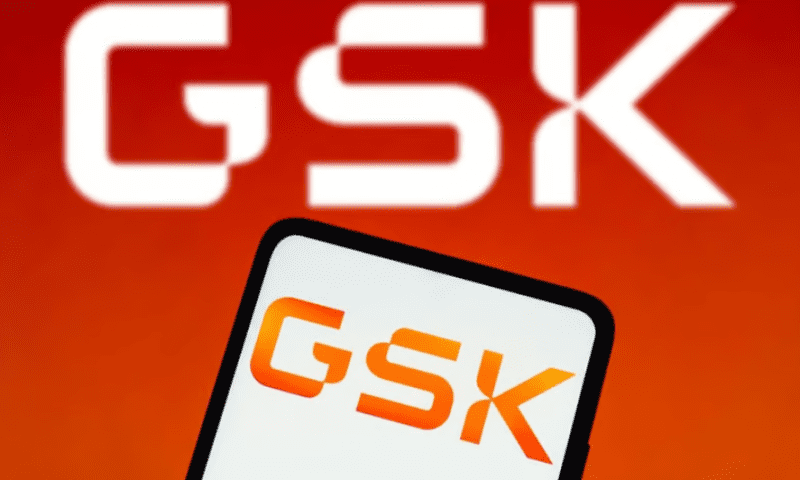Less than six months into the $1.9 billion acquisition of Sierra Oncology, GSK has started to explore the possibility of new indications for the deal centerpiece, JAK inhibitor momelotinib.
Hesham Abdullah, GSK’s global head of oncology development, told Fierce Biotech at the American Society of Hematology 2022 annual meeting that the company is starting to consider opportunities for potential additional indications for momelotinib.
“We’re engaging with key experts over the past few days here at ASH, to get a sense of what that might look like,” Abdullah said.
GSK is waiting for an FDA decision for momelotinib in the bone marrow cancer myelofibrosis, potentially treading on the turf of Novartis and Incyte’s JAK inhibitor Jakafi, Bristol Myers Squibb’s Inrebic and CTI Biopharma’s newly marketed Vonjo. The FDA has given GSK a target action date of June 16, 2023.
Likely pointing to a recent phase 2 readout by MorphoSys that combines investigational pelabresib with Jakafi, Abdullah noted that combination of a BET inhibitor and a JAK inhibitor “seems to indicate some interesting trends in splenic volume reductions,” which represent a key sign of improvement in myelofibrosis. GSK has an internal BET inhibitor candidate, which gives the company the opportunity to consider that option, he added.
But for now, GSK’s focus remains on getting momelotinib approved in the United States and Europe. Having acknowledged that the drug has got “a legacy around it,” Abdullah said GSK’s “base-case scenario” is a go-ahead in the second line in anemic patients following treatment with Jakafi.
That would be an approval based on the phase 3 Momentum study, which GSK offered a longer-term analysis at ASH 2022. Previously, the trial hit its primary goal as momelotinib topped danazol at helping more patients achieve at least 50% reduction on a total symptom score—which is drawn from myelofibrosis symptom assessment form—before the end of week 24 of treatment.
The new 48-week follow-up showed that 97% of patients who responded to momelotinib at week 24 remained in response. Among 61 of momelotinib takers who didn’t reach 50% score reduction at week 24, 12 (20%) achieved a response at week 48. The drug also helped 29% of patients who at first didn’t respond to danazol enjoy a response at week 48.
Existing JAK inhibitors have been able to address the spleen volume symptom in myelofibrosis, but they may worsen anemia, Abdullah noted. But momelotinib can control anemia thanks to its ability to also target activin A receptor, type I, which is elevated in myelofibrosis and contributes to anemia, he explained.
Besides the total symptom score, momelotinib previously also showed benefits on transfusion independence, a secondary endpoint of the Momentum trial. Patients with myelofibrosis may need blood transfusions because of anemia. And transfusion independence is defined as not requiring transfusion for at least 12 weeks before the end of week 24 and with hemoglobin levels of at least 8g/dL.
In a separate analysis, researchers found that patients from both arms of the trial who achieved transfusion independence at week 24 had improved survival outcomes compared with those who didn’t meet independence criteria. For the momelotinib arm, the reduction in the risk of death was 85%.
Despite the Momentum win, momelotinib did have disappointing trial results on its record back when it was owned by Gilead Sciences.
One phase 3 trial, coded Simplify-1, was run in JAK-naïve patients. There, momelotinib failed to beat Jakafi on the total symptom score marker, as 28.4% of momelotinib takers achieved at least 50% reduction, versus 42.2% for Jakafi. Then another phase 3, Simplify-2, found momelotinib couldn’t top best supportive care, which was predominantly Jakafi, in terms of splenic control in JAK-experienced patients.
Abdullah argued that Simplify-2 might have been negatively affected because the patients might not have an adequate period of time to entirely wash out prior JAK treatment from their body. Both trials showed some data on other markers that favored momelotinib.
“We’re looking at the totality of the data from all three studies across second line and first line to be able to better contextualize the potential benefit of this drug to patients,” Abdullah said.
Abdullah also said he wouldn’t rule out potential indications for momelotinib outside of blood cancer. Currently, a whole group of JAK inhibitors are reaping blockbuster sales in inflammatory diseases such as atopic dermatitis and psoriasis. Incyte recently also rolled out Opzelura cream, which has the same ruxolitinib ingredient as Jakafi, in eczema and vitiligo.

